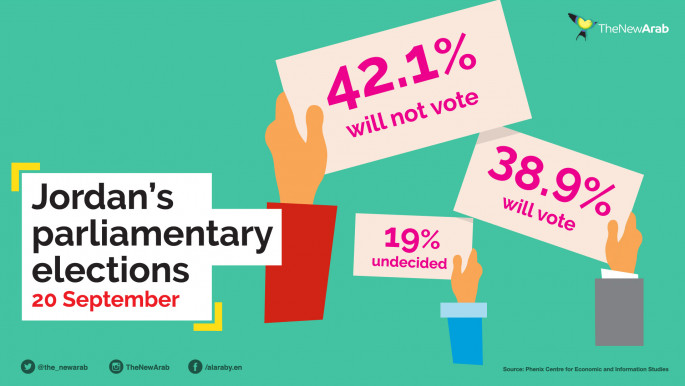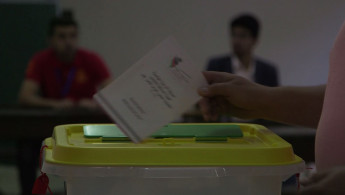Jordanians elect new parliament in cautious reform move
Jordanians head to the polls on Tuesday which could see the opposition Islamists return as a major parliamentary force.
Around 4.1 million voters – from a population of 6.6 million – are to pick 130 lawmakers from 1,252 candidates for a four-year mandate.
The focus will be on the performance of the Islamic Action Front, the political arm of Jordan's Muslim Brotherhood, who experts predict will clinch around 20 seats in the 130-seat parliament.
Businessmen and tribal officials loyal to the monarchy are expected to emerge the biggest winners.
Turnout will also be under the spotlight, with The Phenix Center, a local pollster, suggesting 42 percent of the electorate planned not to take part, reflecting a lack of enthusiasm for a parliament with limited powers to affect government policy.
| See in pictures: Jordanians go to the polls |
In Jordan, King Abdullah II can appoint and sack military and intelligence chiefs, senior judges and members of parliament's upper house without government approval.
The country's highest religious authority, Dar al-Iftaa, issued a fatwa, or religious edict, calling voting a national and religious duty.
It also warned against fraud and vote buying, a common practice in past elections.
Seats have been set aside for 15 women, nine Christians and three representatives of the Circassian and Chechen minorities.
The Islamists boycotted polls in 2010 and 2013 in protest at the electoral system, which gives disproportionate clout to rural districts, which are less populated than the cities but tend to return tribal candidates loyal to the monarchy.
Jordan's electoral commission head said the polls would be conducted in accordance with international standards.
The authorities have amended the law to allow political parties to run lists, rather than a "single vote" system that benefited tribal candidates.
| Read more here: Independents vs parties: Polls to test Jordan's electoral reforms |
The polls will be monitored by 14,000 local observers and 676 from abroad, including 66 sent by the European Union.
The vote comes as Jordan wrestles with high unemployment, fears of a spillover from the wars in neighbouring Syria and Iraq and the strain of hosting hundreds of thousands of refugees.
The polls close at 7:00 pm (1600 GMT).
The interior ministry said 50,000 policemen have been mobilised to ensure security at polling stations.
 |
|





 Follow the Middle East's top stories in English at The New Arab on Google News
Follow the Middle East's top stories in English at The New Arab on Google News


